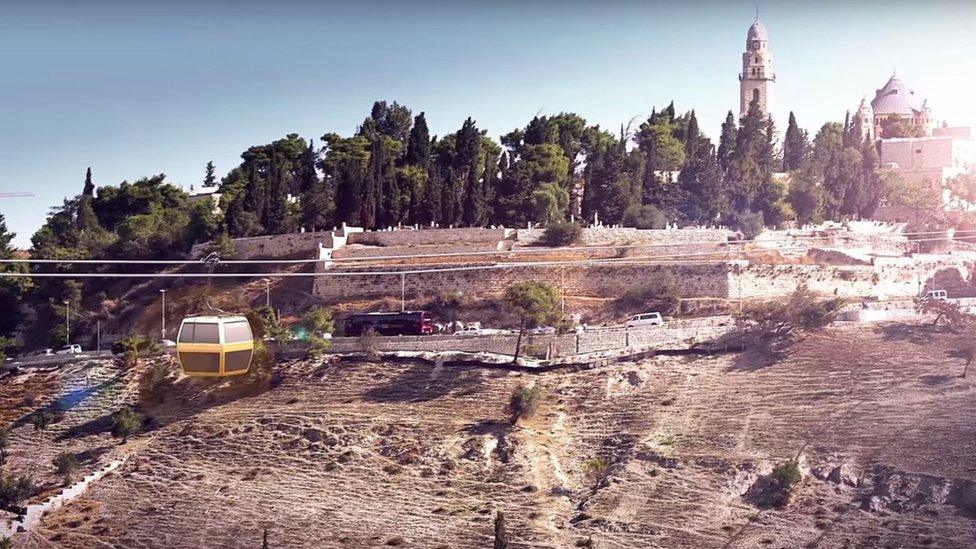Jerusalem: Israel approves controversial Old City cable car plan
- Published

The Old City of Jerusalem is a Unesco World Heritage site
A controversial plan to build a cable car network in Jerusalem's Old City to transport visitors to one of Judaism's holiest sites has been approved by Israel's housing cabinet.
The cable cars will ferry up to 3,000 people an hour about 1.4km (0.9 miles) from West Jerusalem to the Western Wall in occupied East Jerusalem.
Israel's government says the project will reduce traffic congestion.
But opponents say it will damage the area's historic landscape.
They intend to petition Israel's High Court of Justice to stop it.
Emek Shaveh, an Israeli non-governmental organisation working to defend cultural heritage, has previously warned that the cable car network will alter the skyline of the Old City, external - a Unesco World Heritage site - and have a detrimental impact on Palestinian residents of the Silwan area living under the proposed route.
It has also alleged that the project "serves a highly political agenda" and that it was "fast-tracked" through the planning process.
The Palestinian Authority and the Jordanian government - the custodian of the compound behind the Western Wall, known to Muslims as al-Haram al-Sharif (the Noble Sanctuary) and to Jews as the Temple Mount - have also expressed concern about the impact on the Old City.
Why the ancient city of Jerusalem is so important
The Western Wall is a remnant of the site of the biblical Jewish Temple, destroyed by the Romans almost 2,000 years ago, and attracts millions of visitors and worshippers a year.
Before planning approval was granted on Monday, Israeli Finance Minister Moshe Kahlon said the Western Wall was not accessible enough.
"It is impossible that heavy traffic prevents thousands of people from praying, visiting and taking part in military and national ceremonies that are taking place there," he added, according to the Israeli newspaper Haaretz, external.
Jerusalem Affairs Minister Zeev Elkin said: "This is a strategic project to promote tourism in the Old City. Step by step, we are transforming a vision into a new reality."
The status of Jerusalem goes to the heart of the Israeli-Palestinian conflict.
Israel regards Jerusalem as its "eternal and undivided" capital, while the Palestinians claim East Jerusalem - occupied by Israel in the 1967 Middle East war - as the capital of a future state.